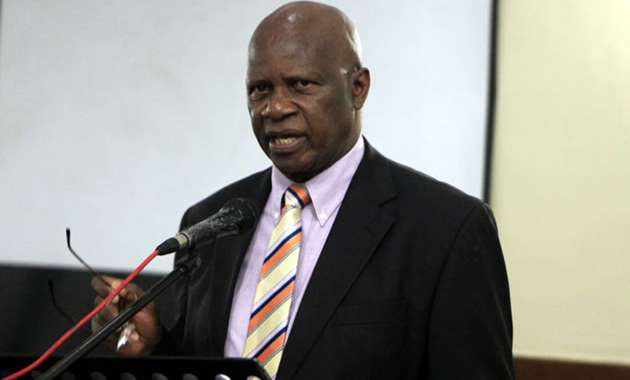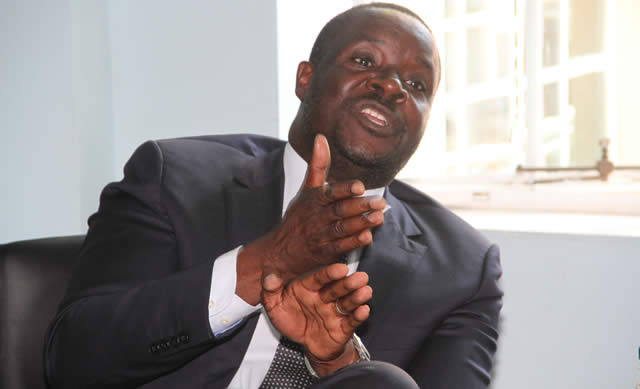Report spells out FDI constraints

Farirai Machivenyika in Harare and Lloyd Gumbo in Victoria Falls—
Zimbabwe’S ability to attract foreign investors is badly frustrated by the high cost of labour, erratic electricity supplies, high taxes and a poor transport infrastructure, the inaugural Zimbabwe National Competitiveness Report released on Friday has revealed. The report was compiled by the National Economic Consultative Forum, a grouping of Government, the private sector, trade unions and civil society.
This came as Government ministers and Members of Parliament said over the weekend that the country was not doing enough to attract foreign investment to fund economic growth. They were speaking in no-holds- barred submissions at the ongoing pre-Budget seminar for MPs in Victoria Falls, where they said Zimbabwe was in urgent need of foreign investment. The Zimbabwe National Competitiveness Report was launched by Vice President Emmerson Mnangagwa on Thursday last week and released the following day.. It calls for the swift establishment of a Competitiveness Commission to address impediments to the country’s competitiveness on the international arena.
“In terms of power supply, the country is currently experiencing acute shortage of electricity that has resulted in frequent power outages,” the report says. “This has been as a result of subdued power generation caused by inefficiencies in the running of thermal power stations, also associated with ageing equipment and outdated technology.
“This development has rendered our commercial and industrial activities less competitive as companies resort to more expensive alternative power sources such as diesel generators.” The report said the country had the second highest labour costs in the region after South Africa.
“Comparing minimum wages, Zimbabwe has one of the highest labour costs in the region, second to South Africa,” it says. “Given that Zimbabwe’s productivity per unit of labour compared to other countries is low, it implies that labour costs are a major cost driver which affects the country’s competitiveness.” On the cost of borrowing, the report said as of 2013, Zimbabwe’s interest rate stood at 28 percent, nearly double the second highest rate in Mozambique at 15,3 percent.
The report said the high interest rates were a result of non-performing loans, low credit rating and non-availability of Government bonds. On water, the report said: “Zimbabwe’s fixed water charges are the least competitive in the region and the pricing models in use are not sensitive to water-intensive industries. Agriculture, abattoirs and the clothing industry are the most affected as they use a lot of water during their operations.”
The report also said the cost of transport in the country was high, with the situation compounded by the deteriorating state of roads and railway infrastructure. “Zimbabwe’s tax regime is more costly and disadvantageous to a local business in relation to comparator countries, with the exception of Mozambique,” the report read.
“A medium-size business can expect to pay 35,3 percent of its commercial profit, which is about 5 percent higher than what a similar company would pay in South Africa (30,1 percent), twice as much as what would be expected for a similar company in Zambia (15,1 percent) and about 10 percent higher in Botswana at 25,4 percent.”
The report said the establishment of a Competitiveness Commission was critical in addressing these issues. “This report calls upon the operationalisation of the Competitiveness Commission which would spearhead the establishment of industry-specific working groups to address cross-cutting constraints to competitiveness,” it read.
“Priorities include initiatives related to cost-drivers, investing in human resources, taking full advantage of regional trade agreements, improving infrastructure and reducing impediments to business formation and growth by hardworking and dynamic Zimbabweans.”
The report also called for the establishment of a National Productivity Institute to provide training and research in the area of productivity and help bridge the gap between skills being churned out by tertiary institutions and industry requirements.
Speaking at the pre-Budget workshop for MPs, Finance and Economic Development Minister Patrick Chinamasa said foreign investors were not against indigenisation, but wanted clarification on what the policy entailed. He said the majority of foreign investors were hesitant to invest here because they thought indigenisation entailed expropriation of foreign-owned companies.
“So, we have an obligation to explain what we want,” said Minister Chinamasa. “Don’t forget at the back of the investor’s mind is the land reform where we took access without paying. So, we need to go out of our way to explain what exactly we mean and we must come up with one answer.”
Minister Chinamasa said countries bordering Zimbabwe attracted more FDI because they had investor-friendly policies. He said last year South Africa attracted about $5,7 billion in foreign investment, Botswana $4,9 billion, Zambia $2,5 billion, while Zimbabwe only attracted about $550 million.
“All the investors who come, it doesn’t matter where they are coming from whether it is China, Europe or America, the language is the same,” he said. “They are looking at coming to make money in Zimbabwe, so we must create that environment where they can make money, but we can also make our money. “We need an environment which produces a win-win situation. This is why we have been working hard to create a conducive environment and to start talking the language that attracts foreign investors,” he said.
“Our key priority in 2016 is that we must focus on policies that grow our economy. So, we need consensus in key priority areas not just in the Executive, but Parliament as well. If we show contradictions, let me say it, capital is a coward. Once there is disagreement or perceived dis- agreement, capital runs away. So, it is very important that we speak with one voice,” said Minister Chinamasa.
Macro-Economic Planning and Investment Promotion Minister Obert Mpofu said inconsistent policy pronouncement from stakeholders, among them Government ministers, scared away investors. MPs also deplored contradictions in policy pronouncements, saying this confused investors.












Comments